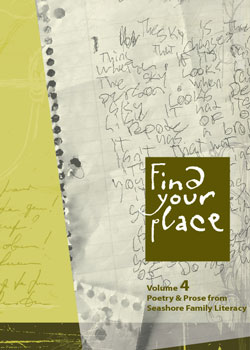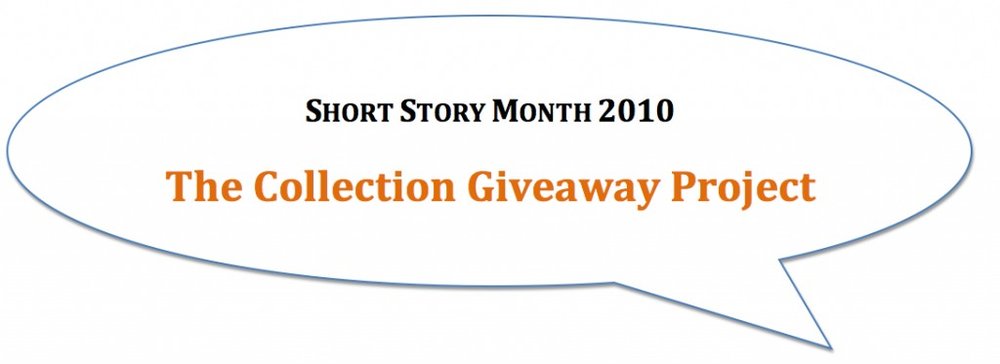gratitude
a bit of sea foam
in my open hands
 Because a few direct questions can lead to endless insight, I'm happy to present Fast Five — short interviews with my favorite writers. Sure, life is short but who doesn't have time for five questions — and a chance to win a great book? (To win, simply post your name and contact info in the comments section below. Your name will be entered in a random drawing to win Pacific by Ce Rosenow).
Because a few direct questions can lead to endless insight, I'm happy to present Fast Five — short interviews with my favorite writers. Sure, life is short but who doesn't have time for five questions — and a chance to win a great book? (To win, simply post your name and contact info in the comments section below. Your name will be entered in a random drawing to win Pacific by Ce Rosenow).
 Our first Fast Five is with Ce Rosenow, president of the Haiku Society of America and the publisher of Mountains and Rivers Press. She lives in Eugene, Oregon where she teaches writing and literature at Lane Community College and the University of Oregon. Pacific is her fifth poetry collection.
Our first Fast Five is with Ce Rosenow, president of the Haiku Society of America and the publisher of Mountains and Rivers Press. She lives in Eugene, Oregon where she teaches writing and literature at Lane Community College and the University of Oregon. Pacific is her fifth poetry collection.
In the introduction to Pacific, Michael Dylan Welch says, “The greatness of the ocean is at once calming and frightening, repelling and attractive, and these poems dwell in such tensions.” What influences or inspirations led you to poetry?
I think the primary reason I was drawn to poetry was a combined love of language and realization that some kinds of knowledge and understanding are beyond the scope of language. Poetry not only accommodates those two responses to language but embraces them.
Why haiku? What is it about this form that interests you?
Reading and writing haiku has the potential to become a life philosophy or a life practice. Haiku focus on a single moment and draw our attention to very specific happenings within that moment. So much of my work outside of haiku involves analysis. Recognizing haiku moments and writing haiku to convey them offer a balance to my analytical work by encouraging me to stay present and attentive to the individual moments I experience.
so many stars
so much I don't know —
winter night
When we met at the Poets’ Concord in Newport, Oregon, we briefly discussed the haiku. Modern haiku is not constrained to the traditional 5-7-5 syllable format. Would you share more about what makes a poem a haiku?
There are so many different approaches to writing haiku in English. Personally, I am drawn to haiku that use images of two simultaneously-occurring events and suggest the interconnectedness of things. At least one of the images is of nature. The internal comparison, or the relationship between the two events, is also central for me in haiku. The poems can either follow a fixed syllable count or, more commonly, no syllable count at all, and I appreciate haiku that effectively utilize a pivot line so that there is some sense of surprise at the end of the poem. There are several books that explain in varying degrees of detail the different approaches to haiku, but I’ll just mention two: The Haiku Handbook by William J. Higginson (now available in the 20th anniversary edition) and Haiku: A Poet’s Guide by Lee Gurga.
What poets and writers would you like to emulate?
I’m afraid I could produce an endless list of writers whose work includes things I admire. I do know that I am particularly drawn to writers who combine their interests in writing, editing, and translating, as well as in publishing the work of other poets. Cid Corman is a wonderful example of someone who dedicated his life to poetry. He wrote poems on a daily basis and engaged for decades in editing, translating, and publishing, as well.
arguing
on the windy beach . . .
sand in my teeth
You are an accomplished poet, teacher and publisher, and have taken part in numerous readings and interviews. What question hasn’t been asked that you’d like to answer?
What a great question! My answer relates to my previous comments about writers I would like to emulate. I think it would be interesting to be asked about the relationship between writing, researching, teaching, editing, translating, and publishing. All of these things are in conversation with one another. They allow me to come at ideas and the expression of ideas through language from so many different perspectives, and those perspectives inform the ways in which I make poems.

To win Pacific, poems by Ce Rosenow, add your name and contact info in the comments section below. Feeling shy? Email me!: dcm@drewmyron.com
Your name will be entered in a random drawing. The winner will be announced on Wednesday, June 23rd.
And the winner is . . . .
Nancy Carol Moody
Congratulations Nancy, you are the lucky recipient of Pacific by Ce Rosenow.
Many thanks to all the readers and writers and poet appreciators who entered the drawing (via email and blog). Your participation is much appreciated.
Pacific — my newest favorite poetry book — can be purchased at Mountains & River Press.

















